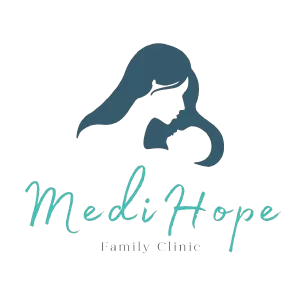Pregnancy is a special time, but it can also come with challenges. Certain pregnancy complications can affect the health of both the mother and baby. Understanding these issues helps expectant mothers and caregivers stay alert and get the right care early. In this article, we will explain seven key pregnancy complications, including hypertensive disorders, group B strep infection, and amniotic fluid problems. This guide will help you recognize warning signs and understand treatments, so you can feel confident throughout your pregnancy journey.
High blood pressure during pregnancy is one of the most common complications. It can cause serious problems if not managed well. There are four main types of hypertensive disorders:
All these disorders cause blood vessels to tighten and narrow, which lowers blood flow to the placenta and baby. This can lead to serious issues like placental insufficiency, where the baby does not get enough oxygen and nutrients.
If a pregnant woman has high blood pressure and protein in her urine, especially with any of these symptoms, she needs urgent medical care.
Doctors treat hypertensive disorders with safe blood pressure medicines like hydralazine and labetalol. ACE inhibitors and ARBs are not used during pregnancy. Magnesium sulfate is often given to calm the nervous system and prevent seizures. Nurses watch for signs of too much magnesium, such as weak reflexes or slow breathing, which requires an antidote called calcium gluconate.
Patients are also advised to reduce salt and caffeine, rest in a quiet environment, and often stay in the hospital for close monitoring.
Group B strep is a type of bacteria that some women naturally carry on their skin or in the genital area. It usually does not harm the mother but can be dangerous for the newborn if passed during birth.
All pregnant women are tested for GBS between 35 and 37 weeks of pregnancy using a simple vaginal and rectal swab. If the test is positive, antibiotics like penicillin or ampicillin are given during labor to protect the baby from infection.
If a woman has no prenatal care or her GBS status is unknown when labor starts, doctors often give antibiotics as a precaution. This helps prevent serious infections in the baby, such as meningitis, pneumonia, and sepsis, which can be life-threatening.
Mothers with GBS may also face risks like infections after birth (chorioamnionitis or sepsis), so treatment and monitoring are important.
Polyhydramnios means there is too much amniotic fluid surrounding the baby. It can happen when a mother has gestational diabetes or if the baby has certain birth defects.
Excess fluid can cause discomfort for the mother and increase the risk of preterm labor or problems during delivery. One way to manage polyhydramnios is by removing some of the fluid through a procedure called amniocentesis, which can be both diagnostic and therapeutic.
Oligohydramnios means there is too little amniotic fluid. This can happen if the water breaks early (premature rupture of membranes), if the placenta is not working well, or if the baby has problems with their kidneys or urinary tract.
Amniotic fluid is important because the baby breathes and swallows it, which helps develop their lungs and kidneys. Low fluid levels can affect the baby's growth and increase risks during labor.
Chorioamnionitis is an infection or inflammation of the membranes around the baby, called the amnion and chorion. It often happens when bacteria from the vagina or urinary tract spread upward.
Symptoms include fever, uterine pain, foul-smelling vaginal discharge, and high white blood cell counts.
Treatment involves antibiotics to clear the infection and protect both mother and baby. If untreated, this infection can cause serious complications for both.
Managing pregnancy complications requires careful nursing care. For hypertensive disorders, nurses regularly check blood pressure, urine protein, reflexes, and watch for signs of seizures. They also monitor respiratory status, especially when magnesium sulfate is given.
For GBS, nurses ensure timely administration of antibiotics during labor and monitor both mother and baby for signs of infection.
In cases of amniotic fluid abnormalities, nursing care includes monitoring fetal well-being through ultrasounds and watching for signs of labor or distress.
Teaching patients about pregnancy complications is vital. Mothers should be encouraged to:
Ongoing follow-up care at a trusted pregnancy clinic, like MediHope Clinic, can provide personalized support and monitoring to keep both mother and baby safe throughout pregnancy.
Gestational hypertension is high blood pressure after 20 weeks without protein in the urine. Preeclampsia includes high blood pressure plus protein in the urine and may have other symptoms like headaches or vision changes.
Group B strep can cause serious infections in newborns. Testing allows doctors to give antibiotics during labor to prevent passing the bacteria to the baby.
Treatment includes blood pressure medicines safe for pregnancy, magnesium sulfate to prevent seizures, and close monitoring in the hospital.
Yes. Too much or too little amniotic fluid can affect the baby's growth and health, so doctors monitor fluid levels and may take steps to manage the condition.
Report severe headaches, vision changes, swelling, pain in the upper belly, fever, or unusual discharge to your healthcare provider immediately.
Some blood pressure medicines like hydralazine and labetalol are safe during pregnancy. Others, like ACE inhibitors and ARBs, are not safe and should be avoided.
Clinics like MediHope Clinic offer expert care, monitoring, and education to help expectant mothers manage pregnancy complications safely.

 Malaysia
Malaysia